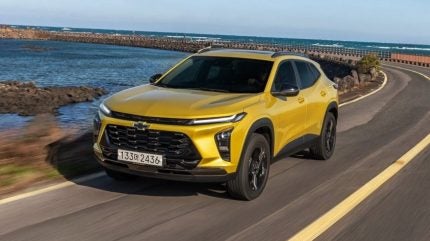
GM Korea Company, the South Korean subsidiary of US automaker General Motors (GM), revealed it plans to sell non-core assets in an effort to reduce costs as business conditions continue to get tougher. The company’s exports are under increased pressure following the introduction of new import tariffs in the US, while in the local market the company is struggling with rising competition from local automakers and importers alike.

Discover B2B Marketing That Performs
Combine business intelligence and editorial excellence to reach engaged professionals across 36 leading media platforms.
GM Korea confirmed it plans to sell off its nine directly-managed aftersales service centres, as part of its efforts to “sustain” its overall operations in the country amid weakening demand, with the staff to be redeployed to other operations within the company. It also plans to sell unused properties and facilities around its main Bupyeong vehicle assembly plant, without affecting its production operations.
GM Korea said it plans to begin consultations with relevant stakeholders to “secure the financial sustainability” of its South Korean operations. The company’s CEO, Hector Villarreal, said in a statement: “Unlocking value from surplus assets and eliminating loss-making service operations are critical to supporting ongoing sustainability.”
GM Korea’s total vehicle sales in the first four months of 2025 declined by over 9% to 154,161 units, with local sales plunging by 41% to 5,434 units while shipments to overseas markets declined by over 8% to 148,727 units. Around 80% of the company’s output is exported to the US.
Mr Villareal emphasized that vehicle production will not be affected by the cuts, pointing out that the company’s “current vehicle programmes still have many years to run” and that the current restructuring is “important to ensuring GM Korea is running as efficiently as possible.”
Earlier this year, GM Korea’s CFO, Paul Jacobson, said the company may consider relocating its manufacturing operations to the US if the new US import tariff hikes become permanent.






